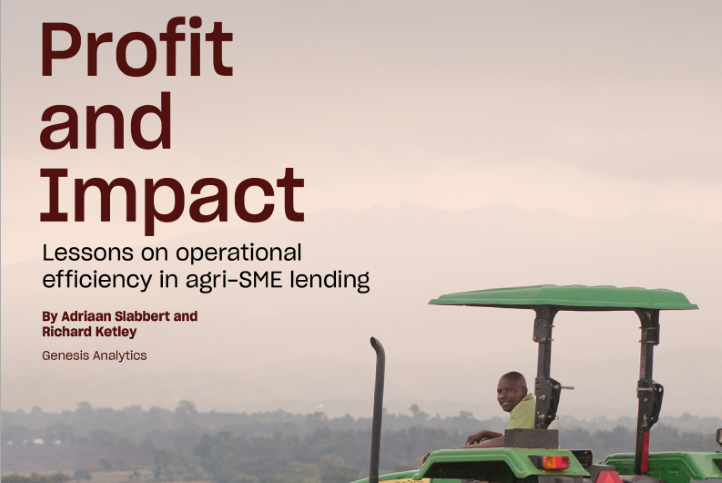News
One of the biggest challenges for rural small and medium-sized enterprises (SMEs) in sub-Saharan Africa is access to working capital finance to sustain and grow their businesses. While there is a growing pool of lenders focused on the rural SME segment, none have achieved significant scale, and the demand for finance still outstrips the supply. Small Foundation is working to increase the number of sustainable and scalable business models delivering rural SME finance address this supply gap and significantly increase the volume of capital flowing to rural SMEs.
In 2019, Small Foundation commissioned Genesis Analytics to conduct research into the operational processes of seven SME lenders, most of which are members of the Council on Smallholder Agricultural Finance (CSAF). The lenders in this sample have a common strategic intent – to drive impact across the agricultural value chain by extending access to finance to those not typically served by large financial institutions. The research aimed to identify operational best practices to serve agri-SMEs more effectively, efficiently and, ideally, profitably. The research assessed the lenders’ operational procedures at each stage of the loan lifecycle and benchmarked the lenders based on their turnaround time, staffing ratios, and costs relative to total loans originated.
Whilst the research was limited by the sample size, it points towards combining a range of best practice strategies across the loan lifecycle to streamline operations; there is no ‘silver bullet’ solution. Three interlinking factors must be managed simultaneously: cost, turnaround time, and risk. To achieve scale lenders must innovate around these factors, with automation, decentralisation, and outsourcing each playing a role, irrespective of a given lender’s market segment focus.
Implementation of these practices will require a fundamental rethink from both lenders and funders of what it means to be efficient when serving agricultural value chains. Covid-19 has the potential to be a catalyst for innovation as lenders’ operational practices must adapt to new realities. We invite you to read the report to learn more about the research and best practices.




